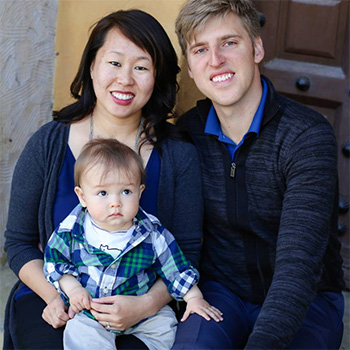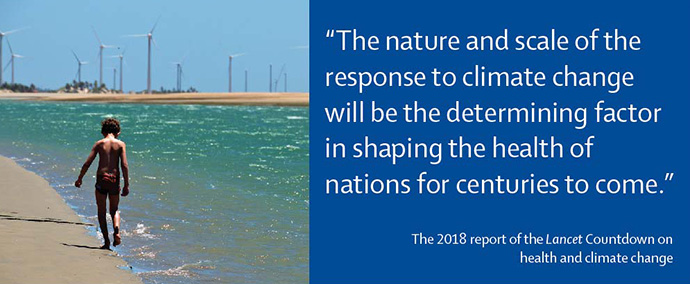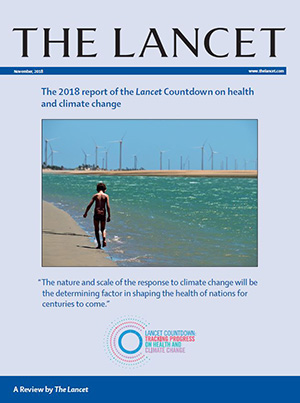Center News |
||||||||||
CSTPR Welcomes Environmental Economist Matt Burgess |
||||||||||
Matt Burgess melds ecology, economics, and policy in his work—forming a new connection between CIRES and CU Boulder’s department of Economics. At CIRES, Burgess will continue his research to explore the relationship between human activity and ecological change. In recent years, for example, he has explored environmental policies such as NOAA's bycatch rule for marine mammals. Bycatch—the accidental killing of sea life during fishing operations—is a complicated problem that demands an understanding of not only the environment, but of people's economic motivations. “Economics is just the ecology of people,” said Burgess. “I’ve blended the two disciplines throughout my education and research career.” Burgess, originally from Montreal, Canada, received his Ph.D. in Ecology, Evolution, and Behavior from the University of Minnesota in 2014. He completed his postdoctoral research at the University of California, Santa Barbara. Today, his research focuses on natural resource management, strategies for ecological conservation, and the economics and ecology of global sustainability. |
Matthew Burgess wuth his wife, Megan, and son, Theo. Photo: Liz Fourie Photography. | |||||||||
Burgess is currently working on a new study investigating when environmental regulators can get away with regulating proxies for pollutants instead of the pollutants themselves. For instance, exploring the question: when is a gas tax an acceptable substitute for a carbon tax? “I am very excited to have Matt join our CIRES faculty,” said CIRES Director Waleed Abdalati. “His expertise in environmental economics will add an important new dimension to our research portfolio, complementing our strengths in the natural sciences and science policy. His expertise in the economics of environmental decisions provides a critical interface between the research we do at CIRES, and the implications for people and businesses.” Burgess’ home department at CU Boulder will be the Environmental Studies Program, where he is an Assistant Professor, and he has a courtesy appointment in Economics. This fall, Burgess is teaching “Natural Resource Economics,” an undergraduate course, and will add graduate-level courses in the near future. He will also supervise a postdoctoral researcher in mathematical sustainability science. Burgess has published his research in Science, the Proceedings of the National Academy of Sciences, Marine Policy, and more. He is also an active writer and communicator, with articles and opinion pieces featured in several U.S and Canadian news outlets, and he maintains an active presence on social media (@matthewgburgess). When he’s not doing research, you can find Burgess spending time with his wife and one-year old son, Theo, playing guitar and singing, or playing soccer, hockey and golf. He has also been known to try his hand at snowblading, a winter sport in which riders zip down snowy slopes using shortened skis and no poles. For more information on Burgess’ lab, click here. | ||||||||||
2019 Inside the Greenhouse Comedy & Climate Change Short Video Competition |
||||||||||
Inside the Greenhouse comedy & climate change short video competition 1st place: $400 prize Competition Details Humor is a tool underutilized in the area of climate change; yet comedy has power to effectively connect people, information, ideas, and new ways of thinking/acting. In this 4th annual competition, we seek to harness the powers of climate comedy through compelling, resonant and meaningful VIDEOS – up to 3 minutes in length – to meet people where they are, and open them up to new and creative engagement. Award Criteria Successful entries will have found the funny while relating to climate change issues. Each entry will be reviewed by a committee composed of students, staff and faculty at CU-Boulder. Application Requirements #1. 1-2 page pdf description of entry, including - title of creative work, #2. A link to the up-to-3-minute composition, posted on Youtube or Vimeo or the like Eligibility Must be a citizen of Planet Earth; work created since January 2018 is accepted; works must be less than 3 minutes in length, captured through video; CU-Boulder employees are not eligible. Submission Deadline February 15, 2019: entries due to itgcomedy@colorado.edu This initiative is part of the Inside the Greenhouse project at CU-Boulder. This project acknowledges that, to varying degrees, we are all implicated in, part of, and responsible for greenhouse gas emissions into the atmosphere. We treat this ‘greenhouse’ as a living laboratory, an intentional place for growing new ideas and evaluating possibilities to confront climate change through a range of mitigation and adaptation strategies.
|
||||||||||
2018 Lancet Countdown on Health and Climate Change Released |
||||||||||
Research from 27 global institutions including CU Boulder show extreme heat damages health and livelihood and may overwhelm hospitals
Leading doctors, academics and policy professionals from 27 organizations, including CIRES fellow and Center for Science and Technology Policy Research (CSTPR) director Max Boykoff and Olivia Pearman, Lucy McAllister, Meaghan Daly from CSTPR’s Media and Climate Change Observatory, have contributed analysis and jointly authored the report. As members of The Lancet Countdown: Tracking Progress on Health and Climate Change, partners behind the research include the World Bank, World Health Organization (WHO), University College London and Tsinghua University, among others. "Climate change is not just an environmental issue, rather it is one involving science, policy, culture, psychology, environment and society,” said Boykoff. “As part of the larger collaboration, I, with members from our Media and Climate Change Observatory at the University of Colorado, examined media representations to help understand public discourse on climate change and health over the past eleven years.” Boykoff’s team determined global coverage of climate and public health has increased by 42 percent between 2007 and 2017, indicating a gradual but promising trend toward more sustained attention to climate change and public health in the public arena, said Boykoff. Some of the new health impacts of heat documented in The 2018 Report of The Lancet Countdown on health and climate change include:
This story was modified from Lancet’s press release. To view the complete Lancet press release, click here. |
||||||||||
Spring 2019 Noontime Seminar Series |
||||||||||
The Spring 2019 noontime seminar series will be beginning soon. All talks take place on Wednesdays at noon in the CSTPR conference room (unless otherwise noted), are free and open to the public, and most will also be webcast. Directions are available here. The schedule is as follows:
|
||||||||||





 New research published in The Lancet medical journal last night shows that rising temperatures as a result of climate change are already exposing us to an unacceptably high health risk and warns, for the first time, that older people in Europe and the East Mediterranean are particularly vulnerable to extremes of heat, markedly higher than in Africa and SE Asia.
New research published in The Lancet medical journal last night shows that rising temperatures as a result of climate change are already exposing us to an unacceptably high health risk and warns, for the first time, that older people in Europe and the East Mediterranean are particularly vulnerable to extremes of heat, markedly higher than in Africa and SE Asia.



